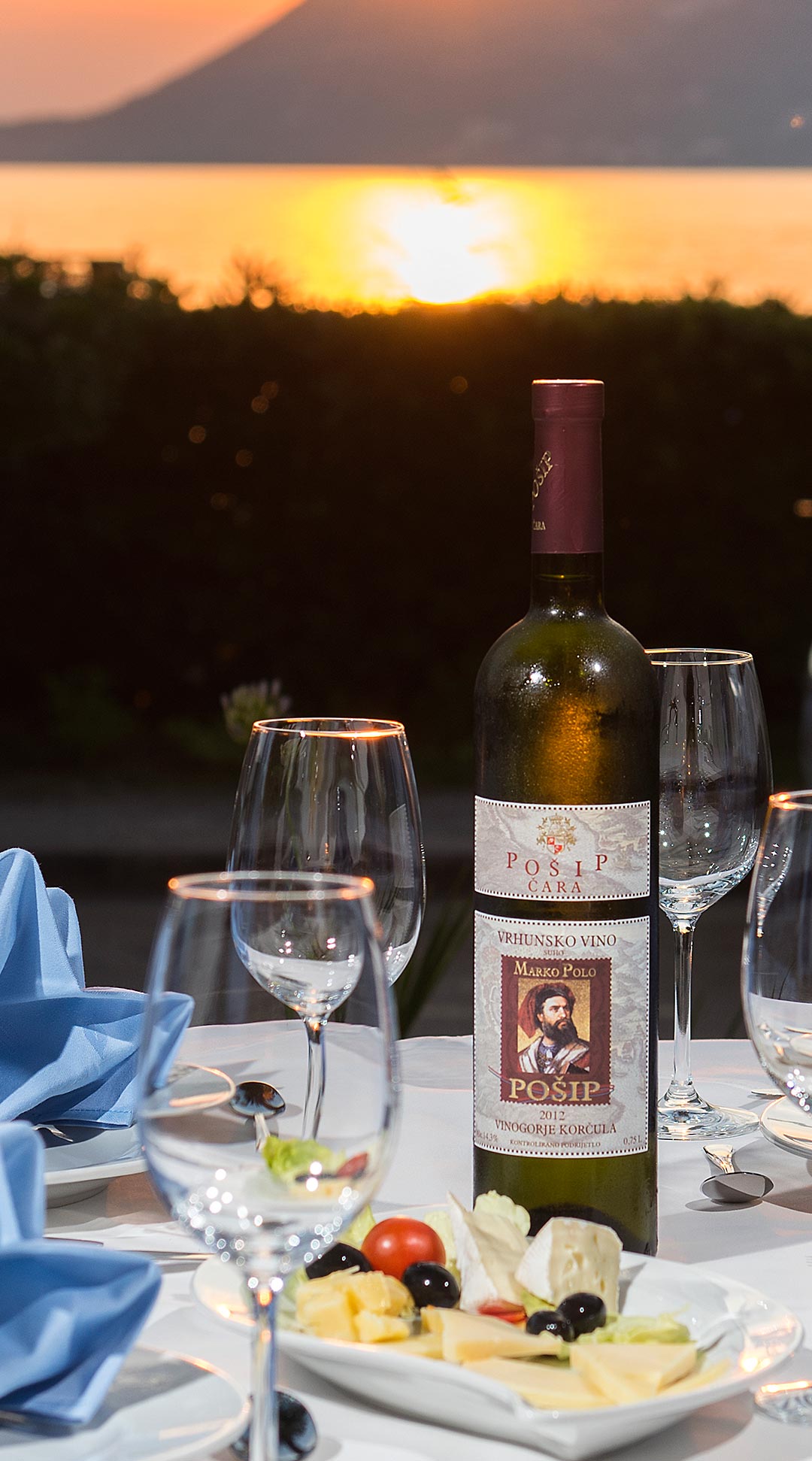Pošip Wine
Pošip is a well-known Croatian white wine that is made of the white grapes of Pošip, has been grown for centuries by local families of wine producers in Smokvica and Cara vineyards on the island of Korcula in Croatia.
The area is called ‘Smokvisko-Carsko Polje‘ which means ‘Smokvica-Cara Field’
The wine has 13.5 to 14,5 vol % alcohol and when fully matured and bottled has an acid of about 5.8 g per liter.
Main characteristics
Colour: white; varying from pale with greenish highlights to the deepest honey gold
Body: full-bodied
Tastes: from zesty apples, subtle vanilla spice, citrus fruit, and an almond aroma.
Locations: Cara & Smokvica, Korcula Island (Pošip is Dalmatian wine)
Price range: $10 upwards (per 75cl bottle)

The Origin
The island of Korcula is the ancient origin of this wine, however, in last 20 years the production of wine spread in the wider area of south Dalmatia so nowadays you can find Posip vineyards spread over Pelješac and Biokovo slopes as well as around Hvar and Brac islands.
Harvest
The Posip grapes ripes early thanks to Maestral, the wind that is very specific to this region which cools down the vineyards exposed to it and keeps the air temperature lower than wider surrounding areas. This provides the ideal conditions of the cultivation of any white grapes especially Posip.
Choosing the right moment to harvest the grapes is essential to wine quality. Therefore, a good Posip can only be made from well-riped grapes that are usually harvested on Korcula within the first week of September.
Fermentation
The fermentation of the wine is slow and involves a lot of patience. The newly produced, young wine is kept continually on the temperature of up to 12 °c. The low temperature protects the wine’s distinguished aroma.
It takes about good 6 to 9 months for Posip to mature, while keeping it in the cool traditional cellars.
The wine is ready to be bottled after about 9 months or more, depending on the weather condition of a particular production year.